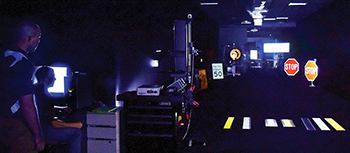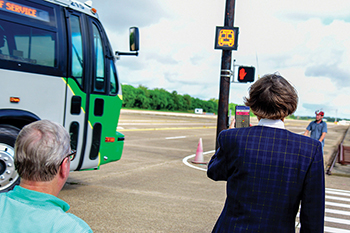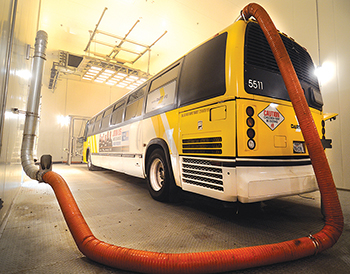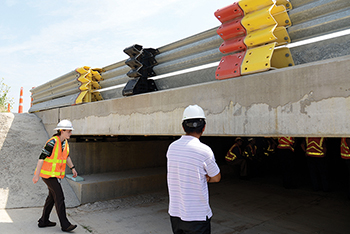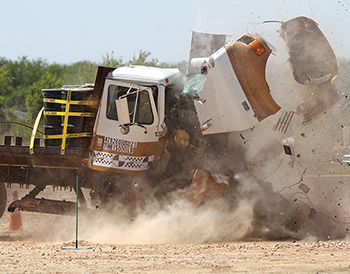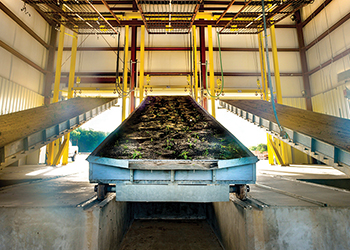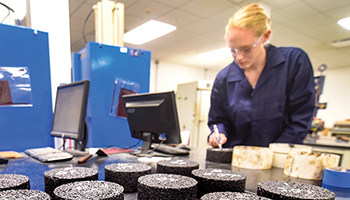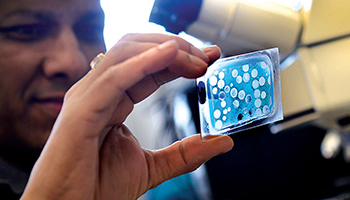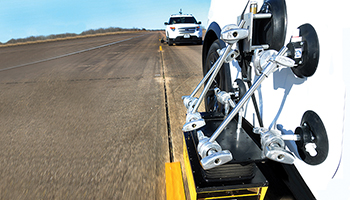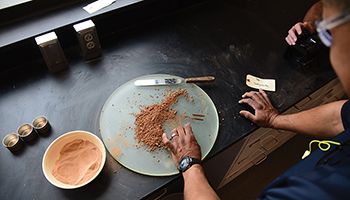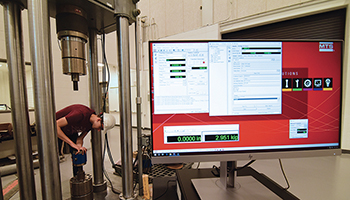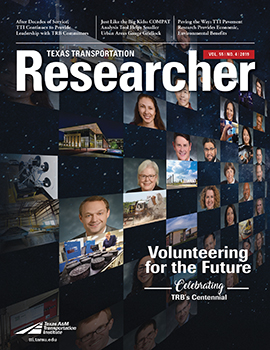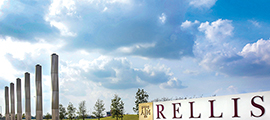Visibility Research Laboratory
TTI’s Visibility Research Laboratory supports research evaluating transportation-related visibility products. The lab is equipped with photometric equipment to evaluate the products while traveling at night or in inclement weather.
Contact: Adam Pike, [email protected]
Smart Intersection
TTI’s Smart Intersection tests connected vehicle applications, traffic signal control and connected infrastructure interoperability. For one research project, the intersection used advanced technologies to provide “turning bus” alerts to pedestrians and bicyclists.
Contact: Srinivasa Sunkari, [email protected]
Driving Simulation Laboratory
TTI’s Driving Simulation Laboratory enables researchers to study driver-related transportation safety issues. The simulator illustrates how distracted drivers respond to traffic conditions, roadway signage, pedestrians, bicyclists, vehicle automation and dashboard icons.
Contact: Michael Manser, [email protected]
Environmental and Emissions Research Facility
TTI’s Environmental and Emissions Research Facility is a drive-in environmental chamber. Replicating temperatures between -5°F and over 131°F, researchers use the facility to test vehicle emissions levels and equipment tolerance to extreme temperatures.
Contact: Jeremy Johnson, [email protected]
Instrumented Bridge
TTI’s Instrumented Bridge is an innovative bridge design that uses a spread precast concrete slab beam system tested under static and dynamic truck loads.
Contact: Mary Beth Hueste, [email protected]
Proving Grounds Research Facility
TTI’s Proving Grounds Research Facility is a hub for roadside safety and physical security, structures, and traffic engineering. Experts conduct crash tests on safety barriers using subcompact passenger cars, pickup trucks and 80,000-pound tractor-trailer rigs.
Contact: Lance Bullard, [email protected]
Sediment and Erosion Control Laboratory
TTI’s Sediment and Erosion Control Laboratory provides performance evaluation for roadside environmental management. This facility is conducive for research focusing on storm water quality improvement as well as vegetation establishment and management.
Contact: Jett McFalls, [email protected]
CENTER FOR INFRASTRUCTURE RENEWAL (CIR)
The CIR is a 138,000-square-foot, multidisciplinary research center housing state-of-the-art facilities and laboratories aimed at making infrastructure smarter, more resilient and longer lasting. TTI and the Texas A&M Engineering Experiment Station co-manage the facility, with TTI’s experts taking the research lead in a number of areas.
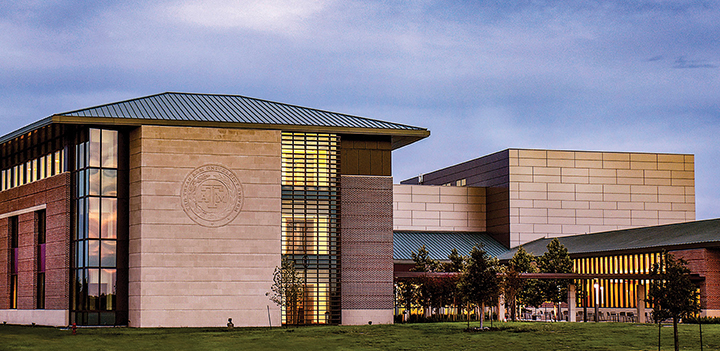
Asphalt Innovation Laboratory.
Research focuses on sustainable improvements in roadway and airfield technology. The lab includes an asphalt binder and chemistry laboratory, material processing and fabrication facilities, and an asphalt mixture testing laboratory.
Concrete Innovation Laboratory.
Using this lab’s equipment, researchers study concrete materials. Researchers develop sustainable construction materials, discover alternatives to cement, test concrete durability, and explore options for recycling and reusing waste.
Contact: Anol Mukhopadhyay, [email protected]
Connected Infrastructure Laboratory.
Experts in this lab develop next-generation sensors and data applications for the connected and automated vehicle environment. Undergraduate and graduate students use the lab to develop expertise in connected transportation.
Contact: Srinivasa Sunkari, [email protected]
Soils and Unbound Materials Innovation Laboratory.
Aiming to find innovative solutions to improve pavement resiliency, researchers investigate soils, stabilization techniques and sustainable rehabilitation techniques in this facility.
Contact: Tom Scullion, [email protected]
Structural and Materials Testing Laboratory.
Researchers perform full-scale testing as well as component and materials testing to evaluate bridge support components, railroad rail fatigue, and scaffolding and shoring.
Contact: Peter Keating, [email protected]
